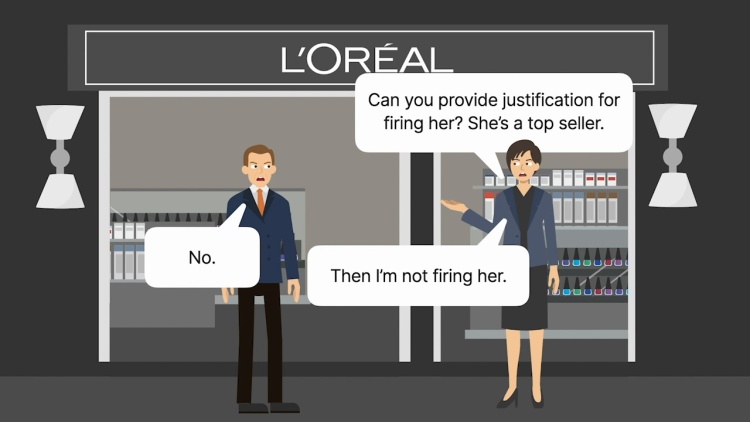Yanowitz v. L'Oreal USA, Inc.
Supreme Court of California
116 P.3d 1123 (2005)

- Written by Sara Rhee, JD
Facts
Elysa J. Yanowitz (plaintiff) was a regional sales manager for L’Oreal USA, Inc. (L’Oreal) (defendant). In 1996, Yanowitz’s supervisor was Richard Roderick, who reported to Jack Wiswall. In 1997, Wiswall demanded that Yanowitz discharge a female sales associate whom Wiswall did not consider to be attractive enough to work for L’Oreal. Wiswall later observed that the associate had not been fired and again instructed Yanowitz to fire and replace the associate with someone more attractive. Yanowitz had managed both male and female associates for years but had never been asked to terminate the employment of male employees for not being sufficiently attractive. Yanowitz repeatedly requested adequate justification for the associate’s termination, but Wiswall did not provide any justification. Yanowitz refused to terminate the associate, as Yanowitz believed that Wiswall’s request constituted sex discrimination. However, Yanowitz never complained about Wiswall’s request to L’Oreal and never explicitly expressed her belief that the request was discriminatory. In April 1998, Roderick began soliciting criticisms regarding Yanowitz’s work. In May 1998, Roderick met with Yanowitz and criticized her dictatorial management style. On July 16, 1998, Roderick wrote a memorandum to Yanowitz, criticizing her work performance. At a meeting on July 22, 1998, Roderick began questioning Yanowitz about her performance and caused Yanowitz to break down crying. Yanowitz soon after took disability leave due to stress and did not return to work. L’Oreal terminated Yanowitz’s employment in November 1998. Yanowitz sued L’Oreal, alleging that L’Oreal had unlawfully retaliated against Yanowitz for refusing to terminate the female sales associate at Wiswall’s direction. L’Oreal moved for summary judgment. The trial court granted summary judgment in L’Oreal’s favor. The court of appeal reversed. L’Oreal appealed.
Rule of Law
Issue
Holding and Reasoning (George, C.J.)
Dissent (Chin, J.)
What to do next…
Here's why 907,000 law students have relied on our case briefs:
- Written by law professors and practitioners, not other law students. 47,100 briefs, keyed to 996 casebooks. Top-notch customer support.
- The right amount of information, includes the facts, issues, rule of law, holding and reasoning, and any concurrences and dissents.
- Access in your classes, works on your mobile and tablet. Massive library of related video lessons and high quality multiple-choice questions.
- Easy to use, uniform format for every case brief. Written in plain English, not in legalese. Our briefs summarize and simplify; they don’t just repeat the court’s language.





